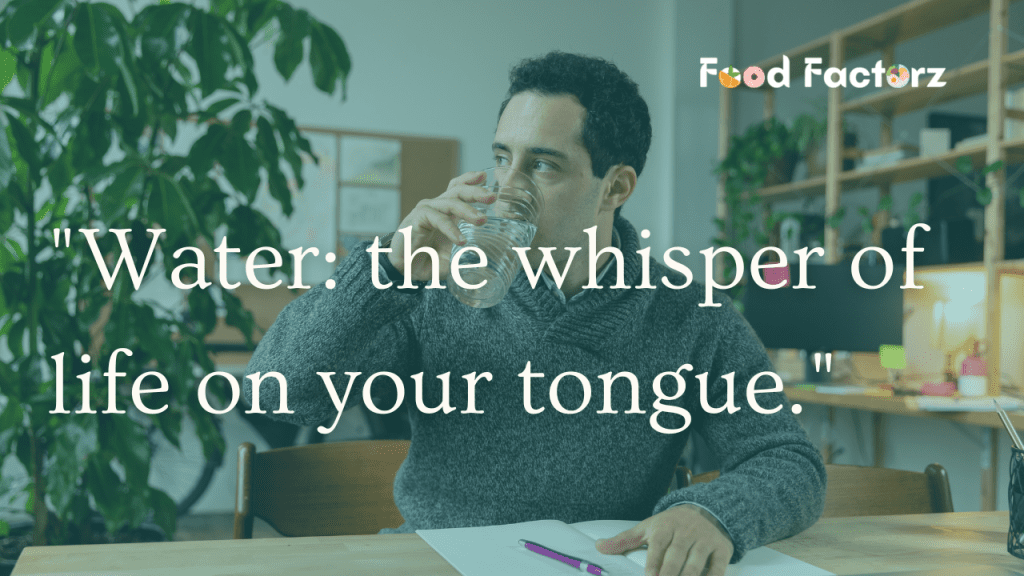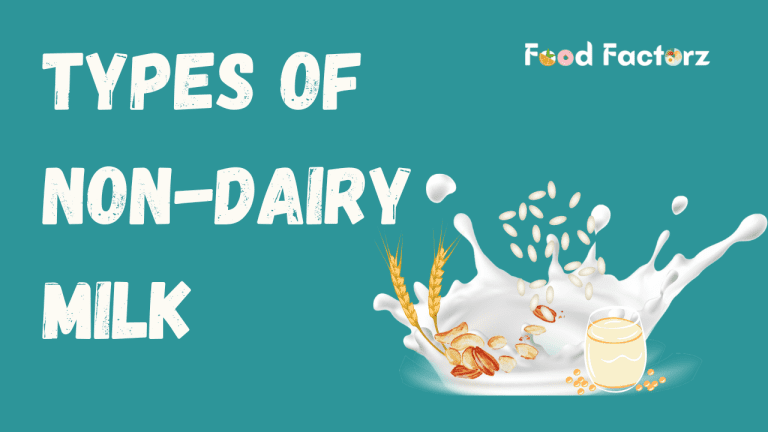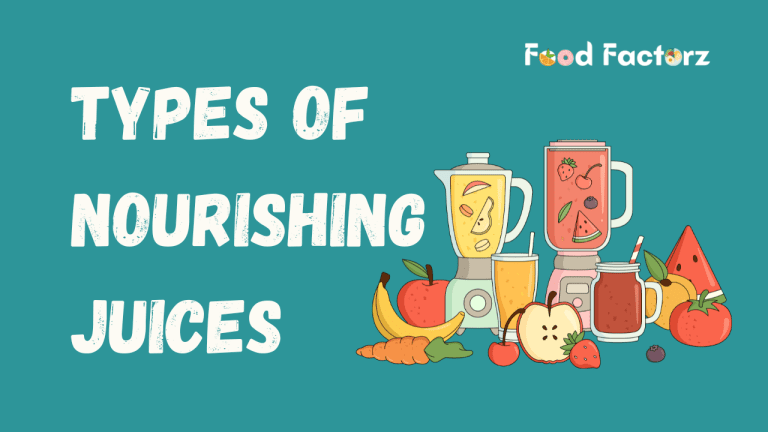
“Water is the driving force of all nature.”
The Artist Leonardo Da Vinci
Introduction:
Water, the elixir of life, has an unparalleled ability to quench our thirst and sustain us. As we delve into the depths of its wonders, let’s explore the importance of water in our diet and uncover 50 unique and nourishing facts about drinking water that will leave you in awe.
Importance of Water in Your Diet:
Before we dive into the fascinating facts about drinking water, let’s take a moment to appreciate the crucial role water plays in our daily lives. From aiding digestion to regulating body temperature, water is the unsung hero of our well-being.
Here are 50 unique and interesting facts about drinking water
- Water molecules form a unique structure that allows them to dissolve more substances than any other liquid.
- The human brain is composed of about 75% water, emphasizing the importance of hydration for cognitive function.
- Drinking cold water can boost your metabolism and help with weight loss.
- Water can exist in three states—liquid, solid, and gas—at the same time.
- The Earth’s water is constantly in motion, cycling through the atmosphere, oceans, and land.
- Water has a memory, as demonstrated by scientific studies, potentially retaining information even after numerous dilutions.
- Hot water freezes faster than cold water under certain conditions, known as the Mpemba effect.
- Approximately 97% of the Earth’s water is in the oceans, with only 3% being freshwater.
- When water freezes, it expands, which is the reason why ice floats.
- About 80–100 gallons of water are used daily by the average American.
- More substances may be dissolved in water than in any other liquid, making it a universal solvent. The longest recorded time without water consumption is 18 days.
- The amount of water on Earth is constant, and the water you drink may have been consumed by dinosaurs.
- Water makes up about 66% of the human body.
- Drinking a sufficient amount of water can help prevent kidney stones and urinary tract infections.
- Water is essential for digestion and nutrient absorption in the body.
- Adequate hydration can improve mood and reduce the risk of depression.
- Water helps maintain body temperature through sweating and respiration.
- The Great Wall of China was built using a mixture of sticky rice and water as mortar.
- Water makes up 70% of the Earth’s surface.
- The colour of the water is naturally blue, but impurities and reflections can affect its colour.
- Up to 30% more metabolism can be temporarily increased by drinking water.
- Water has a unique surface tension that allows small insects to “walk on water.”
- The human body loses about 2–3 litres of water daily through sweating, breathing, and elimination.
- The average household leak can waste more than 10,000 gallons of water each year.
- Water is the only substance found naturally on Earth in three forms: liquid, solid, and gas.
- Over 40% of people worldwide suffer from water scarcity.
- The Antarctic Ice Sheet contains about 60% of the world’s fresh water.
- Water’s mineral content and source could impact how it tastes.
- Drinking water before meals can help with weight loss by promoting a feeling of fullness.
- Water regulates blood pressure and supports cardiovascular health.
- The world’s largest desalination plant is in Saudi Arabia, producing over 500,000 cubic meters of water per day.
- Water can dissolve more substances than any other liquid, earning it the nickname “universal solvent.”
- The human body needs water to exist for only a few days, but it can go weeks without meals.
- Each year, diseases associated with water cause almost 3.4 million fatalities.
- The water footprint of a hamburger is about 2,400 litres, considering the water used in raising cattle and crops.
- A person can go without food for almost a month, but they can only go without water for a week or so.
- With a salinity of more than 30%, the Dead Sea is among the world’s saltiest bodies of water.
- Drinking water can help alleviate headaches and migraines.
- Water is essential for the production of saliva, which aids in digestion.
- With an area of approximately 60 million square miles, the Pacific Ocean is the biggest and deepest of all the oceans.
- Water supports the transportation of nutrients and oxygen to cells in the body.
- Every day, the US uses approximately 346,000 million gallons of fresh water.
- Every day, the typical American household consumes about 300 gallons of water at home.
- Water has a high heat capacity, meaning it can absorb and retain heat efficiently.
- In terms of discharge volume, the Amazon River is the biggest in the world. Drinking water can help prevent constipation and promote regular bowel movements.
- The human body can last for weeks without food but only a couple of days without water.
- Water is a crucial component of saliva, which helps break down food during digestion.
- The shape of a water molecule is known as a bent or V-shape, with two hydrogen atoms bonded to one oxygen atom.
- Water Age: The water you drink today may have circulated through the hydrological cycle numerous times, with some molecules potentially being billions of years old.
- Water on Mars, Scientists have discovered evidence of liquid water on Mars, indicating the possibility of sustaining life or supporting future human exploration.
Here are the 15 benefits of drinking different types of water to stay hydrated:
Now that we have understood the unique facts about drinking water, it is time to understand the various types of drinking water, which is crucial for making informed choices. Here’s a breakdown:
Tap Water
| Regulated and treated for safety. |
| Contains essential minerals for overall health. |
| Cost-effective and readily available. |
Spring Water
| Naturally sourced with a refreshing taste. |
| Contains minerals like calcium and magnesium. |
| Supports hydration and provides electrolytes. |
Well Water
| Varies in mineral content, offering a unique taste. |
| May contain beneficial trace elements like iron. |
| Can be a sustainable water source. |
Distilled Water
| Free of impurities and minerals. |
| Excellent for detoxification and cleansing. |
| Ideal for specific medical and industrial uses. |
Sparkling Water
| Provides a bubbly and satisfying alternative to still water. |
| Can curb soda cravings without added sugars. |
| Offers a different texture and mouthfeel. |
Alkaline Water
| It helps balance the body’s pH levels. |
| Contains antioxidants that may neutralize free radicals. |
| Some people find it smoother and more refreshing. |
Coconut Water
| Naturally hydrating and rich in electrolytes. |
| Low in calories and a good source of potassium. |
| Refreshing taste with a hint of sweetness. |
Cucumber-Infused Water
| Adds flavour without calories or sugars. |
| Cucumbers provide hydration and a subtle taste. |
| A refreshing and spa-like beverage. |
Lemon Water
| Enhances flavour while providing vitamin C. |
| Supports digestion and may boost metabolism. |
| Adds a zesty and refreshing twist to water. |
Herbal Tea Infusions
| A hydrating alternative to plain water. |
| Offers various health benefits depending on the herbs. |
| Low in calories and caffeine-free. |
Chia Seed Water
| Forms a gel-like consistency that aids hydration. |
| Provides omega-3 fatty acids and fibre. |
| Sustain hydration over a longer period of time. |
Electrolyte-Enhanced Water
| It helps replenish electrolytes lost through sweating. |
| Ideal for post-exercise hydration. |
| Supports overall muscle and nerve function. |
Rose Water
| Adds a floral aroma and mild flavour. |
| May have soothing and anti-inflammatory properties. |
| A delicate and exotic choice for hydration. |
Aloe Vera Water
| Known for its potential digestive benefits. |
| Soothes the digestive tract and supports hydration. |
| Offers a unique and mildly sweet taste. |
Mineral Water
| Naturally rich in essential minerals like calcium and magnesium. |
| Promotes bone health and overall well-being. |
| It tastes clean and crisp, enhancing the drinking experience. |
By incorporating a variety of these types of drinking water into your daily routine, you not only stay hydrated but also benefit from the unique properties and flavours each one has to offer. Remember to choose the type of water that aligns with your preferences and health goals.
Tips for Staying Hydrated:
Staying hydrated is key to overall well-being. Keep in mind the following dos and don’ts:
Dos:
Carry a Reusable Water Bottle: Keep a reusable water bottle with you throughout the day for easy access to hydration.
Set Regular Water Breaks: Establish a routine for water breaks, ensuring consistent hydration throughout the day.
Infuse Water with Fruits and Herbs: Add natural flavours to your water by infusing it with fruits like lemon, berries, or herbs like mint.
Monitor Urine Color: Aim for light yellow urine as an indicator of proper hydration. Dark urine may signal dehydration.
Incorporate Water-Rich Foods: Consume foods with high water content, such as watermelon, cucumber, and celery.
Drink Before You’re Thirsty: Thirst is a sign that your body is already partially dehydrated, so aim to drink water before feeling thirsty.
Balance Caffeine Intake: While moderate caffeine consumption is fine, balance it with an increased intake of water to prevent dehydration.
Don’ts:
Avoid Excessive Caffeine: Limit the intake of caffeinated beverages, as they can contribute to dehydration.
Minimize Sugary Drinks: Cut down on sugary beverages, as they can add unnecessary calories and contribute to dehydration.
Don’t Rely Solely on Thirst: Waiting until you feel thirsty may lead to inadequate hydration. Drink water regularly throughout the day.
Limit Alcohol Consumption: Alcohol can dehydrate the body, so moderate its intake and drink water alongside alcoholic beverages.
Avoid extreme diets: Very low-calorie diets can impact hydration. Ensure you’re getting enough fluids, especially if you’re on a restrictive diet.
Don’t substitute water with sports drinks unnecessarily. Unless engaged in intense physical activity, water is usually sufficient to stay hydrated.
Don’t Ignore Environmental Factors: Consider climate and physical activity levels; increase water intake in hot weather or during exercise.
Remember, individual hydration needs vary, so you can adjust these tips based on personal factors such as age, weight, and activity level. Listen to your body and prioritize consistent hydration for overall well-being.
Conclusion
As we wrap up this exploration of interesting facts about drinking water wonders, remember that every drop contributes to our vitality. Share your thoughts on what water means to you, and let’s continue this conversation!
What’s your favourite water fact about drinking water? Do you have any unique water experiences or tips to share? Please feel free to share your ideas and opinions in the comments section below!




